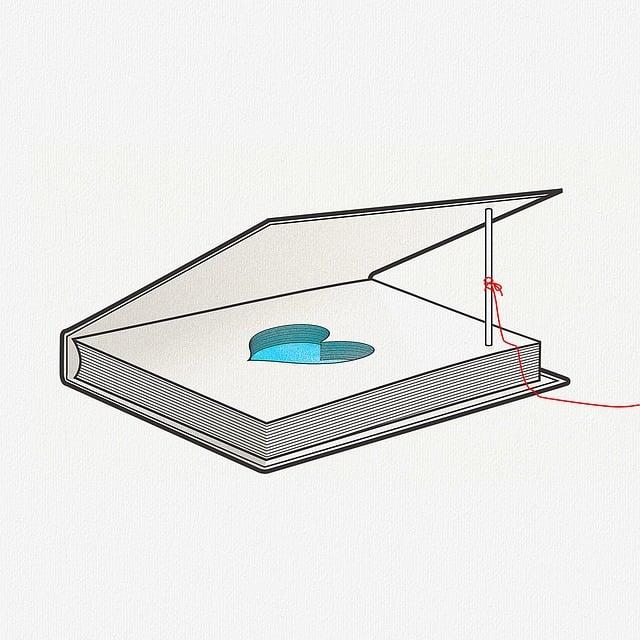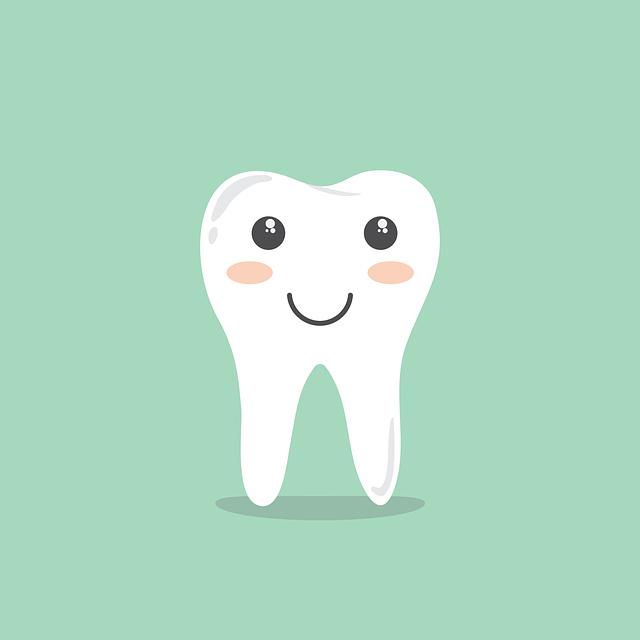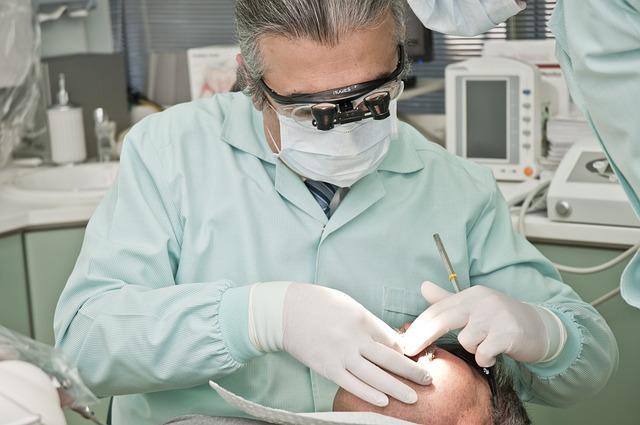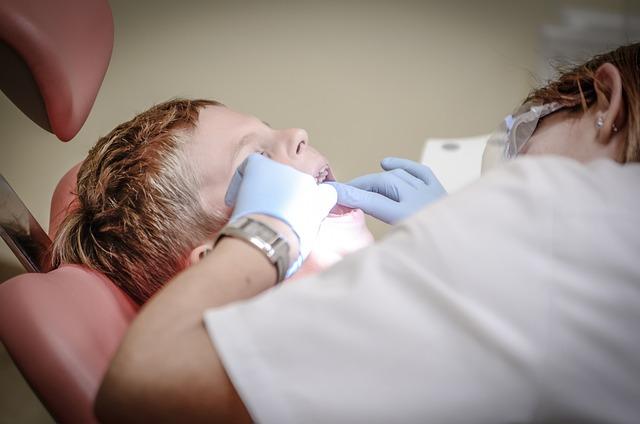When Do I Stop Saltwater Rinse After Tooth Extraction? Dental Insights
When it comes to recovering from a tooth extraction, one common question many patients have is, ”When do I stop saltwater rinses?” This simple yet crucial dental practice plays a vital role in promoting healing and preventing infections. In this article, we will provide you with expert insights and valuable information on the ideal timing for discontinuing saltwater rinses after a tooth extraction. Whether you’ve recently undergone this procedure or are preparing for one, we invite you to delve into the realm of dental knowledge and discover the best practices for a smooth and successful recovery.
1. Understanding the Importance of Saltwater Rinse for Tooth Extraction Recovery
After undergoing a tooth extraction, proper care is crucial for a speedy and successful recovery. One highly effective method to aid in this process is the saltwater rinse. Not only is it easy to prepare, but it also offers a range of benefits that promote healing and prevent infection.
Benefits of Saltwater Rinse:
- Reduced Swelling: Saltwater rinse helps to reduce swelling and inflammation around the extraction site. This is particularly beneficial in the initial days following the procedure, as it can alleviate discomfort and promote faster healing.
- Prevention of Infection: Saltwater has natural antiseptic properties that can help kill bacteria and prevent infection. Rinsing with saltwater can effectively clean the extraction site and maintain oral hygiene, reducing the risk of complications.
- Improved Blood Circulation: The warm saltwater used for rinsing stimulates blood circulation in the area, promoting the delivery of essential nutrients and oxygen to the healing tissues. This increased blood flow accelerates the healing process.
By incorporating saltwater rinses into your tooth extraction recovery routine, you can significantly enhance your healing process and reduce the likelihood of complications. It is important to consult with your dentist for specific instructions and guidance tailored to your individual needs.

2. The Ideal Duration for Saltwater Rinse after Tooth Extraction: Expert Recommendations
After undergoing a tooth extraction, it is crucial to follow proper aftercare to promote healing and minimize the risk of infection. One commonly recommended practice is rinsing with a saltwater solution. But how long should this rinse be? Let’s delve into expert recommendations and find out the ideal duration for a saltwater rinse.
1. **Consult your dentist**: Before determining the duration for your specific case, it is essential to consult with your dentist. They will consider various factors such as the complexity of the extraction, your overall oral health, and any specific instructions they may have for you.
2. **Typical duration**: In general, most experts suggest rinsing with a saltwater solution for about 30 seconds to 1 minute. This duration allows the saline solution to effectively clean the surgical site, remove debris, and promote healing. However, it is crucial to avoid vigorous rinsing, as it may disrupt the formation of a blood clot, which plays a crucial role in the healing process.
3. **Adjustments as needed**: Depending on your dentist’s advice and your individual circumstances, the ideal duration for your saltwater rinse may vary. It is important to follow their recommendations closely to ensure proper healing and avoid any complications. Remember to use the recommended ratio of salt to water, typically about 1/2 teaspoon of salt per 8 ounces of warm water, for an effective and safe rinse.
3. Signs and Indicators that Signal the End of Saltwater Rinse Following Tooth Extraction
After undergoing a tooth extraction, it is essential to follow proper aftercare instructions to promote healing and prevent complications. One common practice is the use of saltwater rinse, which helps to cleanse the extraction site and reduce the risk of infection. However, it is important to know when it is time to discontinue this rinsing technique. Here are some signs and indicators that signal the end of saltwater rinsing:
- Minimal to no pain: Initially, it is normal to experience some discomfort and pain after the tooth extraction. However, as the healing progresses, you should notice a decrease in pain. If you find that you no longer require pain medication and the discomfort has significantly subsided, it may be an indication that you can halt the saltwater rinses.
- Healing of the extraction site: Observe the extraction site closely. As the days pass, you should notice improvements in the healing process. The gum tissue surrounding the extraction site should start to heal, and any swelling or redness should gradually diminish. Once the site appears to be nearly fully healed, it may be time to discontinue the saltwater rinse.
- No signs of infection: Keep a close eye on the extraction site for any signs of infection, such as increasing pain, persistent swelling, discharge, or a foul odor. If you notice any of these symptoms, it is crucial to consult your dentist immediately. However, if the extraction site shows no signs of infection and appears to be healing well, you can consider discontinuing the saltwater rinse.
Always remember to consult your dentist for specific instructions regarding the duration of saltwater rinse following tooth extraction. Every individual’s healing process may vary, and your dentist can provide personalized guidance based on your unique situation.
4. The Role of Saltwater Rinse in Preventing Infection and Promoting Healing after Tooth Extraction
After a tooth extraction, proper care is crucial to prevent infection and promote healing. One effective method to aid in this process is by using a saltwater rinse. This simple yet powerful solution can significantly reduce the risk of infection and accelerate the healing of the extraction site.
Here are some key benefits of using a saltwater rinse:
- Kills bacteria: Saltwater has natural antibacterial properties that help eliminate harmful bacteria in the mouth. Rinsing with saltwater reduces the risk of infection by keeping the extraction site clean and free from bacteria.
- Reduces inflammation: Saltwater rinse can help reduce inflammation and swelling around the extraction site. This can alleviate discomfort and promote faster healing.
- Improves blood circulation: The gentle swishing motion of saltwater rinse can stimulate blood flow to the extraction site, which aids in delivering essential nutrients and oxygen to promote healing.
- Alleviates pain: Saltwater rinse has a soothing effect on the gums and can provide temporary relief from post-extraction pain and discomfort.
It is important to note that a saltwater rinse should be used as directed by your dentist or oral surgeon. They will provide specific instructions on how often and for how long you should use the rinse to optimize its benefits. Remember to always consult with a dental professional for personalized advice and to address any concerns you may have.
5. Exploring the Factors that Influence the Duration of Saltwater Rinse after Tooth Extraction
When it comes to the duration of saltwater rinsing after tooth extraction, several factors can influence the optimal time for this practice. Understanding these factors is crucial for promoting proper healing and minimizing complications. Here are some key considerations:
- Severity of the extraction: The complexity and extent of the tooth extraction procedure can impact the recommended duration of saltwater rinsing. In cases where a simple extraction is performed, rinsing for 24 to 48 hours after the procedure is generally sufficient. However, for more complex extractions, such as impacted wisdom teeth, a longer duration of saltwater rinsing may be required, often extending up to a week.
- Individual healing ability: Each person’s healing process varies, and factors such as age, overall health, and oral hygiene practices can influence the duration of saltwater rinsing. While some individuals may heal quickly, others may require an extended period of rinsing to ensure proper healing and reduce the risk of infection.
- Presence of complications: If any complications arise after the tooth extraction, such as excessive bleeding or infection, the duration of saltwater rinsing may need to be prolonged. In such cases, it is advisable to consult with a dental professional to determine the appropriate length of rinsing to address the specific complications.
It is important to note that the duration mentioned here serve as general guidelines. Every tooth extraction case is unique, and it is always best to follow the advice provided by your dentist or oral surgeon for the most accurate recommendations regarding saltwater rinsing after tooth extraction.
6. Gradually Phasing Out Saltwater Rinse: A Step-by-Step Guide to Ensure Optimal Healing
After undergoing certain dental procedures, it is common to rely on saltwater rinses for healing and maintaining oral hygiene. However, as the healing progresses, it becomes essential to gradually phase out the use of saltwater rinses to ensure optimal healing. Here’s a step-by-step guide to help you through this process:
- Consult with your dentist: Before making any changes to your post-treatment routine, it is crucial to consult with your dentist. They will provide personalized advice based on your specific needs and the nature of the procedure you underwent.
- Begin incorporating a gentle mouthwash: As your healing progresses, your dentist may recommend transitioning from saltwater rinses to a gentle mouthwash. This can help maintain oral hygiene while reducing any discomfort or inflammation.
- Gradually reduce salt concentration: If your dentist suggests continuing with a saltwater rinse, start gradually reducing the salt concentration. This can be done by using less salt in each rinse or diluting the solution with water. Remember to follow your dentist’s instructions and monitor your oral health closely during this transition.
- Monitor your healing progress: Throughout the process, it is crucial to monitor your healing progress and any changes in your oral health. Pay attention to any signs of infection, inflammation, or discomfort and promptly inform your dentist if you notice anything unusual.
By gradually phasing out saltwater rinses and following your dentist’s guidance, you can ensure optimal healing and maintain good oral health post-treatment.
7. Expert Tips and Insights on Monitoring Progress to Determine When to Stop Saltwater Rinse
When it comes to saltwater rinses, monitoring progress is crucial to ensure you receive the maximum benefit without any potential harm. Here are some expert tips and insights to help you determine when to stop your saltwater rinse:
- Observe the healing process: Pay close attention to how your mouth is healing. If you notice significant improvement in the affected area, such as reduced swelling or less pain, it may indicate that you can stop the saltwater rinse. Remember, healing times can vary, so consult with your dentist if you’re unsure.
- Watch for any adverse reactions: While saltwater rinses are generally safe, some individuals may experience adverse reactions. If you notice any unusual symptoms like increased pain, persistent swelling, or an allergic reaction, discontinue the rinse immediately and consult a dental professional.
- Follow the recommended duration: Saltwater rinses are typically advised for a specific duration, such as 7-10 days. It’s important to adhere to these recommendations and not extend the rinse unnecessarily. Prolonged use may lead to imbalances in the mouth’s natural flora or other complications.
Remember, these tips are general guidelines, and it’s always best to consult with your dentist or oral healthcare professional for personalized advice.
8. The Importance of Post-Extraction Oral Hygiene: Beyond Saltwater Rinse
Proper oral hygiene is crucial after tooth extraction to promote healing and prevent complications. While a saltwater rinse is a commonly recommended practice, it is just the tip of the iceberg when it comes to post-extraction oral care. Here are some key aspects to consider:
- Oral hygiene routine: In addition to saltwater rinses, it is essential to continue brushing your teeth gently twice a day. Use a soft-bristle toothbrush to avoid irritating the extraction site. Be cautious around the area, but don’t neglect the rest of your mouth.
- Choosing the right toothpaste: Opt for a toothpaste that is gentle and non-abrasive. Look for products specifically designed for sensitive teeth or post-extraction care. Avoid toothpaste with strong flavors or chemicals that may irritate the healing tissues.
- Maintaining a proper diet: Stick to soft foods for the first few days after the extraction. Gradually introduce a balanced diet that includes fruits, vegetables, and proteins. Avoid excessively hot or cold foods, as well as sticky or hard-to-chew items that may disrupt the healing process.
- Avoiding smoking and alcohol: Both smoking and alcohol can hinder the healing process and increase the risk of complications. It is best to abstain from these habits until the extraction site has fully healed.
- Regular dental visits: Schedule follow-up appointments with your dentist to ensure proper healing and monitor any potential issues. Your dentist may recommend additional treatments or provide personalized advice based on your specific situation.
By going beyond a simple saltwater rinse and following these guidelines, you can significantly improve your post-extraction oral hygiene and minimize the likelihood of any complications.
9. Addressing Common Concerns: Can I Safely Discontinue Saltwater Rinse Earlier?
It is natural to wonder if you can safely discontinue saltwater rinse earlier than recommended after a dental procedure. While every individual’s healing process may vary, it is generally advised to follow the prescribed duration of the saltwater rinse for optimal results. Here are some common concerns addressed:
1. Promotes healing: Saltwater rinse is known to help reduce swelling and inflammation, prevent infection, and promote faster healing. Discontinuing it prematurely can hinder the healing process and potentially lead to complications.
2. Risk of infection: Saltwater rinse acts as a natural antiseptic, killing harmful bacteria in the mouth. Completing the full course of saltwater rinse ensures that any remaining bacteria are eliminated, reducing the risk of infection.
3. Follow professional advice: Dentists prescribe saltwater rinse based on their expertise and knowledge of your condition. Following their recommendations ensures the best possible outcome and minimizes any potential risks.
While it may be tempting to discontinue saltwater rinse earlier, it is crucial to prioritize your oral health and follow the prescribed guidelines. If you have any concerns or questions, always consult with your dentist for personalized advice.
10. Achieving a Speedy Recovery: Additional Measures to Support Healing after Tooth Extraction
After a tooth extraction, it is important to take additional measures to support the healing process and ensure a speedy recovery. Here are some tips to help you in this journey:
- Follow post-operative instructions: Your dentist will provide you with specific instructions to follow after the tooth extraction. It is crucial to adhere to these guidelines to promote healing and prevent complications. This may include taking prescribed medications, avoiding certain foods or activities, and practicing proper oral hygiene.
- Manage pain and swelling: It is normal to experience some discomfort and swelling after a tooth extraction. To alleviate these symptoms, your dentist may recommend over-the-counter pain relievers or prescribe medication. Applying an ice pack to the affected area can also help reduce swelling. Remember to follow the recommended dosage and consult your dentist if the pain or swelling persists or worsens.
- Take care of the extraction site: To prevent infection and promote healing, it is essential to keep the extraction site clean. Gently rinse your mouth with warm saltwater solution a few times a day, starting 24 hours after the procedure. Avoid vigorous rinsing or spitting, as it may dislodge the blood clot and delay healing.
- Stick to soft foods: For the first few days after the extraction, stick to a soft diet to avoid irritating the extraction site. Opt for foods like yogurt, mashed potatoes, smoothies, and scrambled eggs. Avoid hot or spicy foods, as they can cause pain and discomfort.
- Monitor for signs of complications: While rare, complications can occur after a tooth extraction. Watch out for excessive bleeding, severe pain, persistent swelling, or signs of infection such as fever or pus. If you experience any of these symptoms, contact your dentist immediately.
Frequently Asked Questions
Q: When should I stop saltwater rinses after a tooth extraction?
A: It is generally recommended to continue saltwater rinses for about one week after a tooth extraction.
Q: Why are saltwater rinses important after a tooth extraction?
A: Saltwater rinses help promote healing and prevent infection in the extraction site.
Q: How often should I perform saltwater rinses?
A: Saltwater rinses should be done at least two to three times a day, or as advised by your dentist.
Q: What is the proper way to perform a saltwater rinse?
A: To perform a saltwater rinse, dissolve half a teaspoon of salt in eight ounces of warm water. Gently swish the solution in your mouth for about 30 seconds and then spit it out.
Q: Can I use any type of salt for the rinse?
A: It is recommended to use non-iodized salt for saltwater rinses, as iodized salt may cause irritation.
Q: Are there any signs that indicate I should stop saltwater rinses earlier?
A: If you experience excessive bleeding, severe pain, or any other concerning symptoms, it is important to contact your dentist for further guidance.
Q: Can I replace saltwater rinses with mouthwash?
A: While mouthwash can be used as an alternative, it is generally recommended to use saltwater rinses specifically after a tooth extraction for their healing properties.
Q: Is it normal to have some discomfort during saltwater rinses?
A: Some mild discomfort or a slight stinging sensation can be expected during saltwater rinses, especially in the first few days after the extraction. However, if the discomfort persists or worsens, it is advisable to consult your dentist.
Q: Should I continue saltwater rinses if my extraction site has completely healed?
A: Once the extraction site has fully healed, it is generally not necessary to continue saltwater rinses. However, it is always best to consult your dentist for personalized advice.
Q: Can saltwater rinses replace regular oral hygiene practices?
A: Saltwater rinses are an additional step to aid in the healing process after a tooth extraction, but they should not replace regular oral hygiene practices such as brushing and flossing.
In Conclusion
In conclusion, understanding when to cease saltwater rinses after a tooth extraction is crucial for optimal healing. By following these dental insights, you can confidently navigate this post-operative period with knowledge and clarity. Remember, once the initial healing stage is complete, typically around one week, it is safe to discontinue saltwater rinses. However, always consult your dentist or oral surgeon for personalized guidance. Protect your oral health by staying informed and maintaining a natural human tone throughout your dental care journey.






